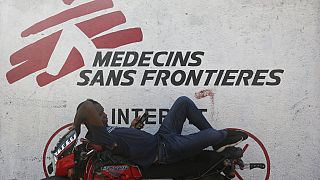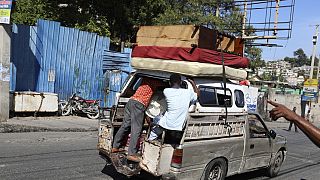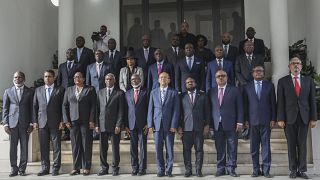Haiti
More than a year into the pandemic, Haiti has no single Covid-19 vaccine for its over 11 million population.
This has raised concerns among health experts of the well-being of Haitians as political instability in the country deepens.
"The state government is supposed to give us masks, give us masks to wear for the coronavirus. But they don't give us the masks and we don't know where to go and buy them. They sell them at a higher price for us to be able to afford it. We are poor, we can't afford them. Therefore, we don't wear masks. The coronavirus hasn't hit us. I'm not saying it's not here, it hasn't hit us", said vendor, Marie Altagracia.
Haiti is expected to receive 756,000 doses of the Astrazeneca vaccines through a UN program aimed at getting the jabs to neediest nations.
The free doses are expected to arrive in May at the latest. But even with this relief, the country has challenges.
"If I have three million doses of vaccines, first do we find a safe place for storage? Second do we the capacity to use all the doses before they expire? Because when you received the vaccines and started using it, it could expire. We have to know all these details before we can start receiving the vaccines and saying that it's available for people to get the vaccines", said Lauré Adrien, General Director of Haiti's Health Ministry.
Haiti missed a deadline and the Indian manufacturer of the jabs says it is now prioritizing an uptick in local demand. The country also did not apply for a pilot program in which it would have received some of its allotted doses early, according to the Pan American Health Organization.
Meanwhile, a spokeswoman has commended Haiti’s pandemic efforts, including reinforcing hospital preparedness.
Haiti's lack of vaccines comes as it reports more than 12,700 cases and 250 deaths, numbers that experts believe are underreported.
Perceptions also remain a big challenge.
While face masks remain mandatory at Haiti businesses, airport closures and curfews have long been lifted, and other precautions are rare.
Ongoing protests and a spike in kidnappings and gang-related killings have some wondering how many vaccines will be administered given the lack of stability coupled with a growing number of people afraid to leave their homes. Many also fear being inoculated, despite educational campaigns.
In addition, some officials have raised concern about the AstraZeneca vaccine, which has recently come under scrutiny in Europe after a significant number of people who received it developed unusual blood clots.











Go to video
Africa CDC endorses Morocco's Mpox test
01:15
WHO: Mpox cases in South Kivu may be 'plateauing', but DRC seeing a 'general rising trend' in cases
01:50
Zipline partners Nigeria for improved healthcare delivery
01:20
Mpox: Head of Africa CDC urges partners to honour pledges as death toll tops 1,000
01:05
Nigeria to roll out a new malaria vaccine
00:53
Bavarian Nordic mpox vaccine gets green light from WHO for use in adolescents